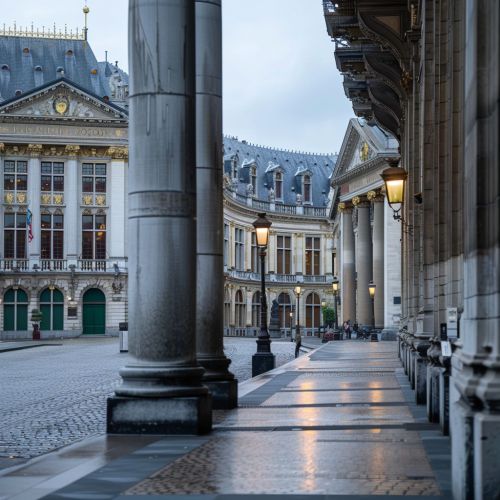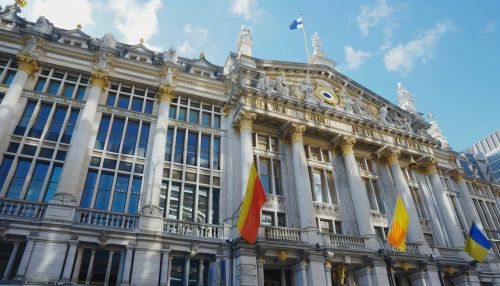Politics of Belgium
Politics of Belgium
The politics of Belgium are characterized by a complex system of governance that reflects the country's diverse linguistic, cultural, and regional identities. Belgium is a federal parliamentary constitutional monarchy, which means it has a monarch as head of state within the framework of a parliamentary democracy and a federal system of government. This article delves into the intricate political structure, key institutions, and the multifaceted nature of Belgian politics.


Historical Background
Belgium's political landscape has been shaped by its history, which includes periods of foreign domination, revolution, and the establishment of an independent state. The Belgian Revolution of 1830 led to the country's independence from the Netherlands and the establishment of a constitutional monarchy. The 1831 Constitution laid the foundation for Belgium's political system, which has evolved significantly over the years.
Federal Structure
Belgium is a federal state composed of three regions: Flanders, Wallonia, and the Brussels-Capital Region. These regions have significant autonomy and their own governments. Additionally, Belgium is divided into three linguistic communities: the Flemish Community, the French Community, and the German-speaking Community. This federal structure aims to accommodate the country's linguistic and cultural diversity.
Regions
- **Flanders**: The northern region, predominantly Dutch-speaking.
- **Wallonia**: The southern region, predominantly French-speaking.
- **Brussels-Capital Region**: Bilingual region with both Dutch and French as official languages.
Communities
- **Flemish Community**: Represents Dutch-speaking Belgians.
- **French Community**: Represents French-speaking Belgians.
- **German-speaking Community**: Represents the small German-speaking population in the east.
Constitutional Monarchy
Belgium is a constitutional monarchy with a hereditary monarch as the head of state. The monarch's powers are largely ceremonial, with real political power vested in elected officials. The current monarch is King Philippe, who ascended the throne in 2013.
Parliamentary System
Belgium has a bicameral parliament consisting of the House of Representatives and the Senate. The House of Representatives is the primary legislative body, while the Senate has a more limited role.
House of Representatives
The House of Representatives has 150 members elected through proportional representation. It is responsible for passing laws, approving the budget, and overseeing the government.
Senate
The Senate has 60 members, including directly elected senators, senators appointed by community parliaments, and co-opted senators. Its role includes representing the interests of the regions and communities.
Political Parties
Belgium has a multi-party system with numerous political parties representing a wide range of ideologies and interests. The major political parties are typically divided along linguistic lines, with separate parties for Dutch-speaking and French-speaking communities.
Major Political Parties
- **New Flemish Alliance (N-VA)**: A Flemish nationalist and conservative party.
- **Socialist Party (PS)**: A French-speaking social-democratic party.
- **Christian Democratic and Flemish (CD&V)**: A center-right Flemish party.
- **Reformist Movement (MR)**: A liberal French-speaking party.
- **Green (Groen and Ecolo)**: Environmentalist parties in Flanders and Wallonia, respectively.
Government Formation
Forming a government in Belgium is a complex process due to the need to balance the interests of different linguistic and regional groups. Coalition governments are the norm, and negotiations can be lengthy. The Prime Minister is the head of government and is usually the leader of the largest party in the coalition.
Judicial System
Belgium's judicial system is independent of the executive and legislative branches. It includes various levels of courts, with the Court of Cassation being the highest court. The Constitutional Court oversees the constitutionality of laws and protects fundamental rights.
Linguistic and Cultural Issues
Linguistic and cultural differences play a significant role in Belgian politics. Tensions between the Dutch-speaking Flanders and French-speaking Wallonia have led to calls for greater regional autonomy and even discussions about the potential division of the country. The Brussels-Capital Region, being bilingual, often serves as a focal point for these tensions.
European Union Membership
Belgium is a founding member of the European Union (EU) and hosts several key EU institutions, including the European Commission and the European Parliament. Its membership in the EU has a significant impact on its domestic politics and policies.
Recent Political Developments
In recent years, Belgian politics have been marked by prolonged government formation periods, reflecting the challenges of coalition-building in a divided political landscape. Issues such as economic policy, immigration, and regional autonomy continue to dominate the political agenda.
